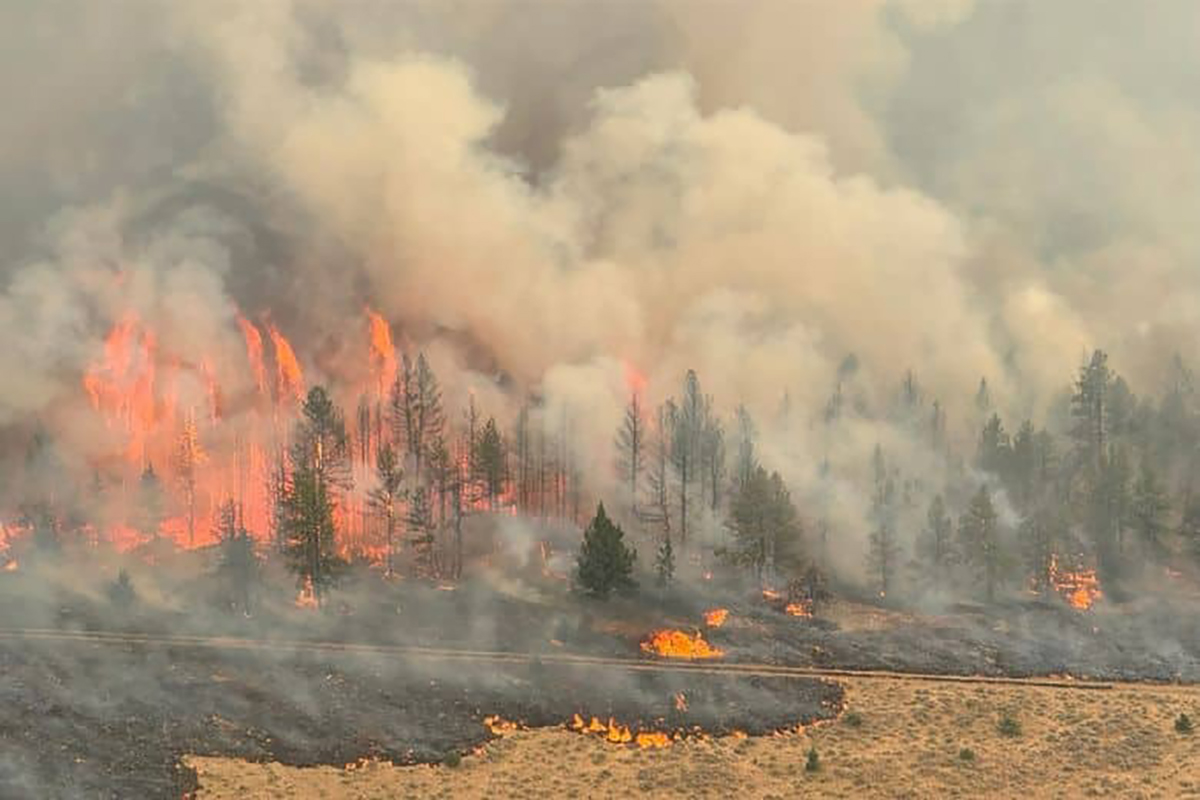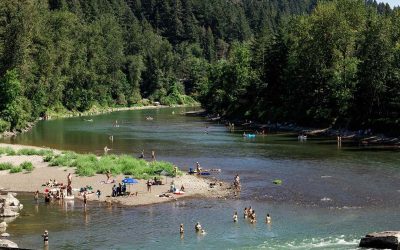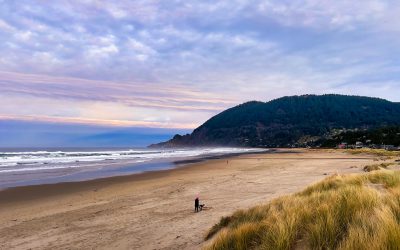As reported by the Oregon Capital Chronicle, smoke and smog are severely impacting much of Oregon's air quality, state officials announced on Wednesday.
By mid-day, the Oregon Department of Environmental Quality (DEQ) had issued an air advisory for 20 of Oregon’s 36 counties due to wildfire smoke. Shortly thereafter, a smog alert was issued for the Portland area and Umatilla County.
The smog results from ozone pollution caused by weather conditions and traffic emissions. According to the agencies, ozone forms when hot temperatures and low winds combine with pollutants from cars, gas-powered engines, and chemicals found in paints and aerosols. These pollutants react with sunlight and heat, producing ozone and haze.
The Diamond Complex consists of 27 lightning-caused fires. #LiveOnKPIChttps://t.co/JHzHyZamdT
— KPIC News (@KPICNews1) August 7, 2024
Monitoring Conditions
Stay informed about current air quality conditions and advisories through DEQ’s Air Quality Index or by downloading the free OregonAIR app on your smartphone.
While morning air quality may appear clear, pollution levels typically rise as the day progresses and temperatures increase. Peak pollution levels often occur in the afternoon and early evening. Additionally, smoke levels can fluctuate throughout the day depending on weather conditions. DEQ noted that smoke from large wildfires in Oregon, Washington, and California could impact counties including Baker, eastern Benton, Clackamas, eastern Douglas, Harney, Hood River, Jackson, Jefferson, Josephine, central Lane, Linn, Malheur, Marion, Multnomah, eastern Polk, Umatilla, Wallowa, Wasco, eastern Washington, and eastern Yamhill.
Both smoke and smog can irritate the eyes, nose, and lungs, contributing to respiratory problems. Vulnerable groups such as pregnant individuals, seniors, and those with heart disease or respiratory conditions should avoid exposure by limiting outdoor activities when pollution levels are high.
The agencies urged residents in the Portland area, known for its heavy traffic, and Umatilla County, with its numerous highways, to carpool or use public transportation to reduce emissions. They also recommended avoiding the use of gas-powered yard equipment, not idling vehicles, and postponing aerosol painting projects.
The smog advisory will remain in effect in Umatilla County until 8 p.m. Wednesday and in the Portland area until 8 p.m. on Thursday. The smoke alert is expected to last until Friday afternoon.
Tips to Help Deal with Smoke
- Monitor Air Quality
- Keep track of air quality in your area using websites like Oregon Smoke Blog and AirNow.
- Be aware that worsening air quality can increase the likelihood of negative health effects.
- Stay Indoors
- Close doors and windows to keep smoke out.
- Use wet cloths to seal any cracks where smoke might enter.
- If smoke is particularly bad or you have a large home, set up a single room as a clean room.
- Maintain Clean Indoor Air
- Use a portable air cleaner to purify the air inside.
- Run an air conditioner if available, but keep the fresh air intake closed.
- Use HEPA or MERV-13 filters to trap pollutants.
- Avoid Indoor Pollutants
- Do not use candles, fireplaces, or cigarettes that create smoke.
- Refrain from vacuuming or other activities that can stir up particles.
- Stay Hydrated and Alleviate Symptoms
- Drink plenty of water to help your body fend off inhaled particles and irritants.
- Use artificial tears or saline to moisten your eyes if needed.
- Wear the Right Mask Outdoors
- Cloth masks and face coverings for COVID-19 do not protect against wildfire smoke.
- Use masks (respirators) marked NIOSH with N95 or P100.
- Refer to the Environmental Protection Agency for proper mask usage guidelines.
- Protect Yourself When Driving
- Avoid driving when the air is thick with smoke due to low visibility.
- If travel is necessary, keep vehicle windows closed, use the air conditioner, and set it to recirculate air.
- Occasionally vent the air to prevent carbon dioxide build-up which can cause drowsiness.
- Look Out for Pets
- Remember that pets such as dogs and cats can also be affected by wildfire smoke.













